Today we're breaking down Tiger Woods' chipping technique and examining how it aligns with everything taught in our comprehensive Chipping How-To Guide.
If you struggle with chipping, the problem may not be your ability at all — it could be the advice you've been following. Many golfers receive fundamentally flawed guidance from playing partners and even from golf instructors.
The most common setup error we see among golfers who need help with their short game is positioning the ball way back in their stance with the hands pressed aggressively forward.
This setup inevitably leads to chopping down into the ball with an excessively steep angle of attack.
The result: heavy chunks, thin skulls that race across the green, and chronic inconsistency around the putting surface.
If you feel jerky — or you notice a hitch at the bottom of your chipping action — that's a major indicator that your ball position is too far back and your hands are pressed too far forward.
Let's examine Tiger's technique, compare it to the principles in our chipping series, and identify how you can apply these same mechanics to your own game.
Setup: Ball Position & Weight Distribution
In the setup photo above, Tiger clearly has his weight favoring his lead side — approximately 60-70% on his left foot. As we'll see, he maintains this distribution throughout the entire stroke.
His stance is very narrow — roughly a club head width between his feet — with the ball positioned just off the inside of his trail foot.
Many golfers take far too wide a stance for chipping and then compound the error by placing the ball practically behind the trail foot. We've actually heard instructors teaching students to do exactly this.
If you combine a very wide stance with the ball behind your trail foot, the ball can end up as much as 12 inches behind where Tiger positions his.
From that position, you'll inevitably come into the shot at an extremely steep angle. It becomes nearly impossible to avoid chunking, thinning, or pulling up out of the shot.
Another key observation: Tiger uses only a slight amount of forward shaft lean. His hands aren't pressed 20-30 degrees in front of the ball. Excessive forward press is yet another factor that creates a dangerously steep angle of attack.
Tiger creates a nice, shallow angle of attack. He's still hitting down and through the ball, but not at a severe angle that demands compensations.
Does Wrist Hinge Belong in the Chipping Stroke?
As Tiger takes the club back, notice that he allows a subtle amount of wrist hinge — and this is actually correct.
We discussed wrist hinge in detail throughout the chipping series. There's a popular concept called "The Triangle" — referring to the shape formed by the arms and shoulders at address.
Many instructors advise keeping your hands in front of the triangle and simply rocking back and through.
If Tiger followed that advice rigidly, his club shaft would extend straight from the tip of the triangle, as illustrated in the center photo below. He clearly doesn't do that.
You actually need a small amount of lag in the chipping stroke. Keep your wrists soft and allow the club to hinge naturally under its own weight during the backswing, maintaining a fluid, relaxed motion.
Tiger isn't rigidly "rocking the triangle." He allows his hands to create a slight angle between the shaft and his lead forearm.
It's not dramatic — nothing close to the significant angle you'd see in a full pitch shot — but there is a deliberate, controlled amount of wrist hinge.
One additional backswing observation: Tiger keeps both arms very straight throughout.
As we covered in the Chipping How-To Guide, this is an area where the RotaryConnect can provide tremendous benefit. Practicing with the RotaryConnect on your arms teaches you to maintain proper arm extension and prevents the trail arm from bending and pulling the club inside.
Excessive trail arm bend is one of the most common causes of inconsistent chipping. Once you start bending the trail arm and dragging the club head well behind your body, you need extensive manipulation in the downswing just to get the club back to the ball.
Impact: Hands Lead the Way Through
Tiger stays loose and athletic as he swings through the shot.
He allows the club to release naturally under its own weight while ensuring his hands remain forward of the ball at impact.
You can clearly see his hands leading the club head in the photo at left. He swings down and through with the hands ahead.
His lead wrist doesn't break down through impact. In the next photo — approximately 2 feet past impact — notice that the back of his left glove still faces out toward the target.
His lead wrist remains flat, and he maintains that position through the shot. Preserving a flat lead wrist through impact delivers remarkable consistency in your chipping.
The final element to examine is Tiger's knee action. Looking at his position throughout the stroke, he stays soft and relaxed as he rotates back and through.
There's just a subtle amount of knee movement.
His body obviously isn't rotating dramatically — there isn't a lot of action required in a chip shot. His shoulders rotate gently around his spine, and he maintains that soft, athletic feel in his lower body.
It's not a putting stroke where you're attempting to lock the lower body completely still. It's more like shooting a free throw in basketball — a small amount of body action while staying loose, relaxed, and athletic.
Hopefully this analysis has been useful. Seeing the fundamentals from our Chipping How-To series executed by one of the greatest short game players in history reinforces exactly why these principles work. If you want to see how your own swing mechanics compare to the elite model, try a free AI swing analysis for personalized feedback on your technique.
Watch part 2 now to see how you're moving your body in the opposite direction of the pros!
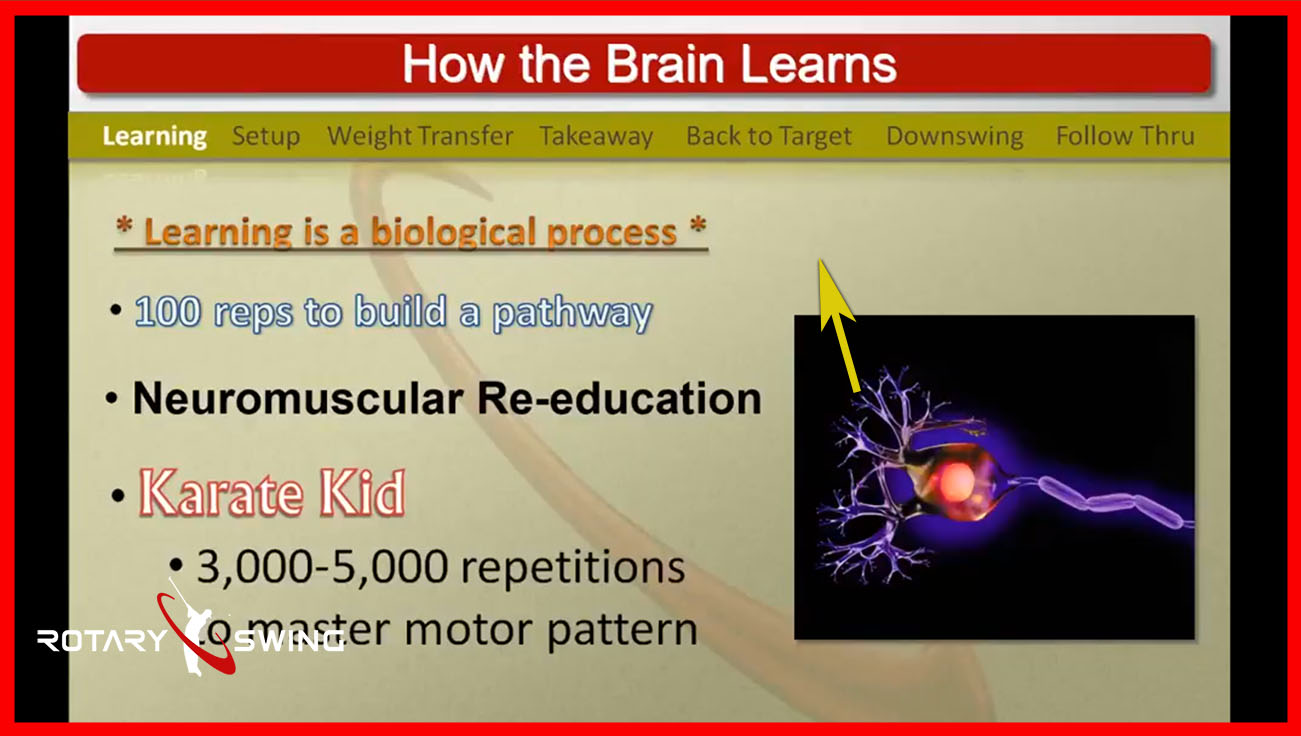











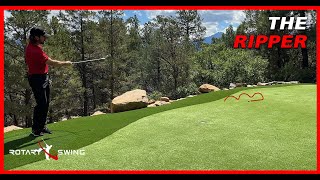

















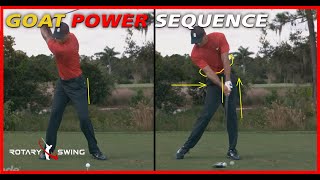
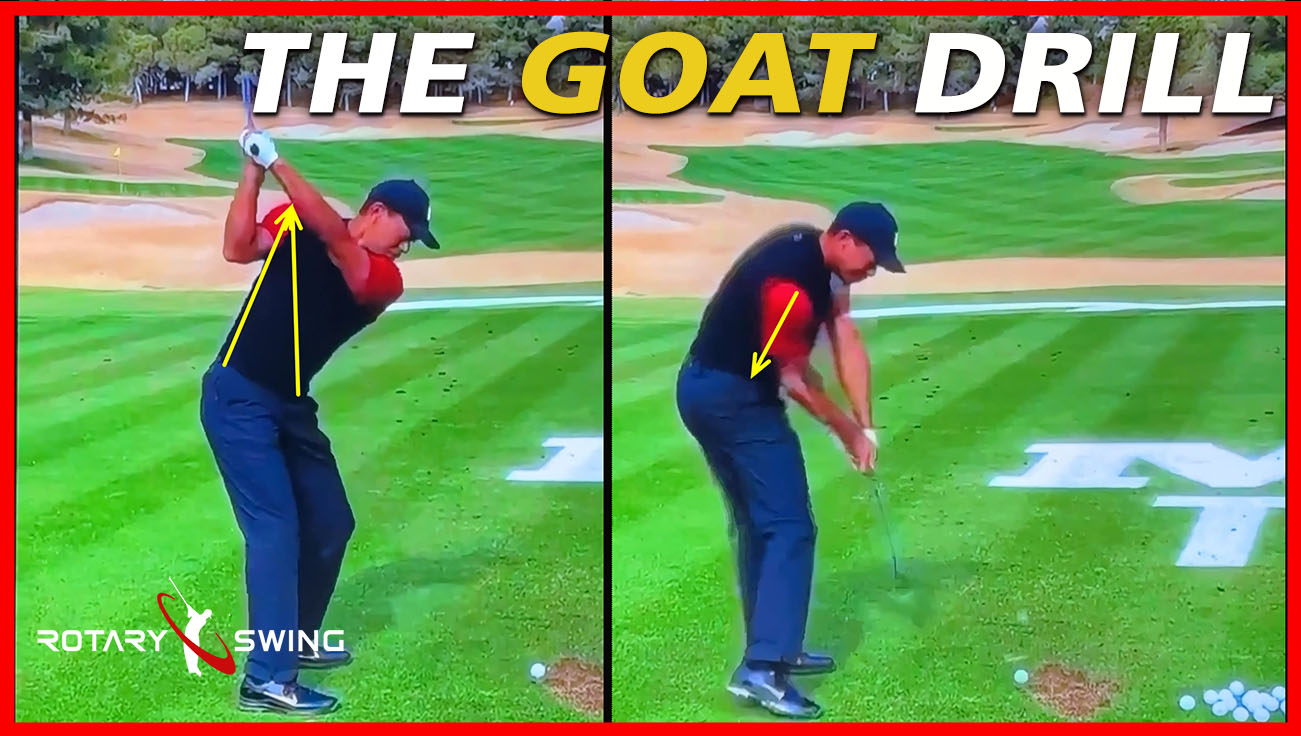



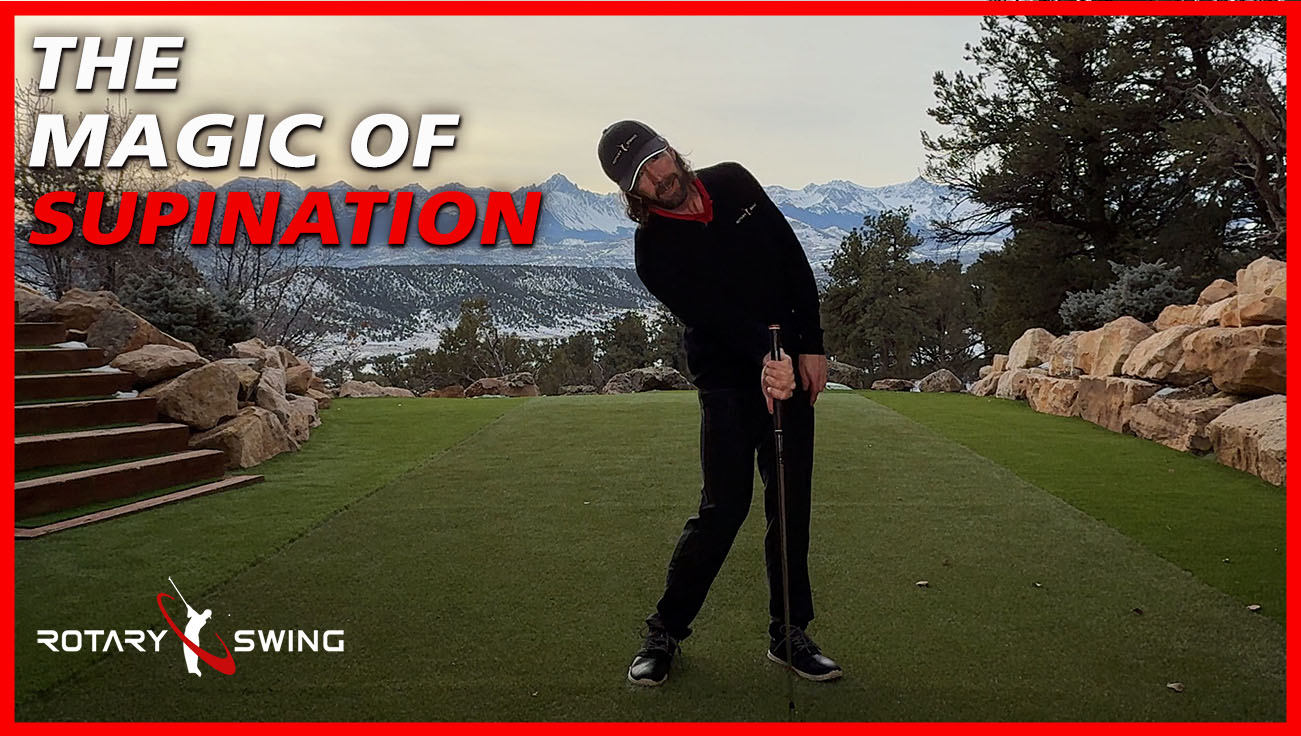

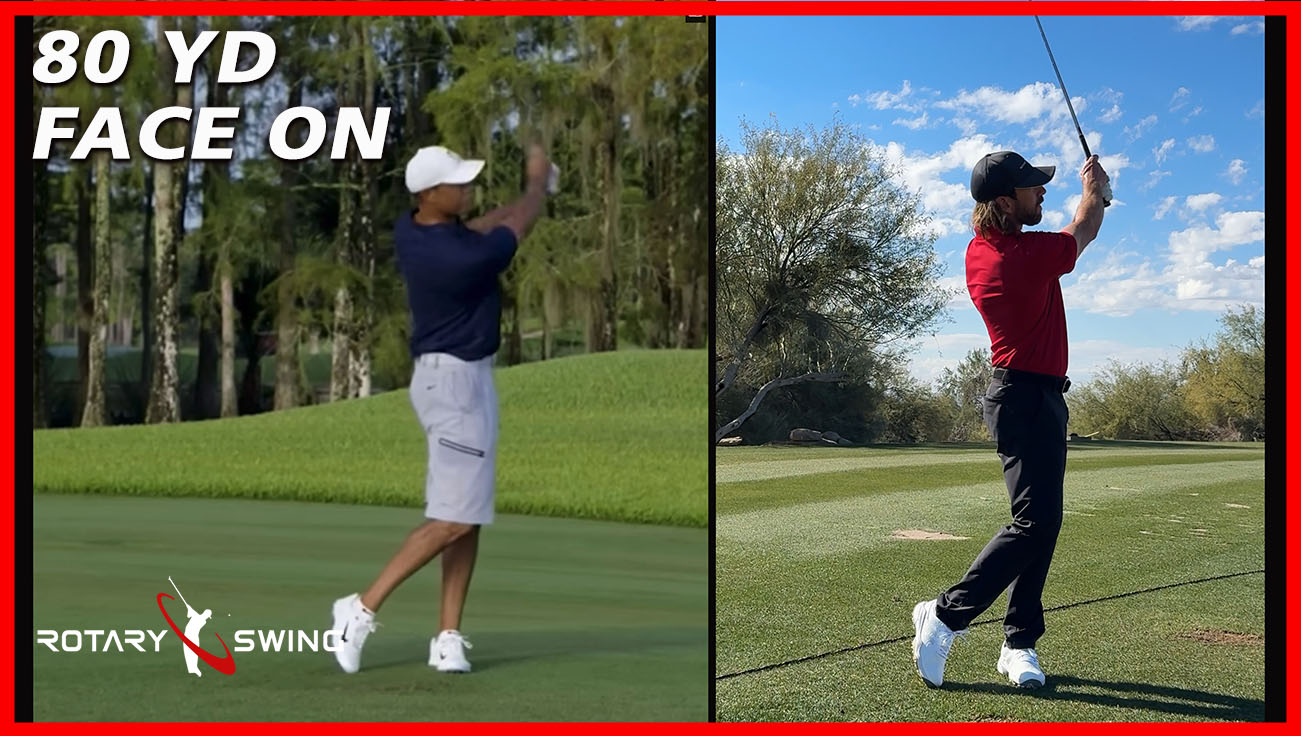
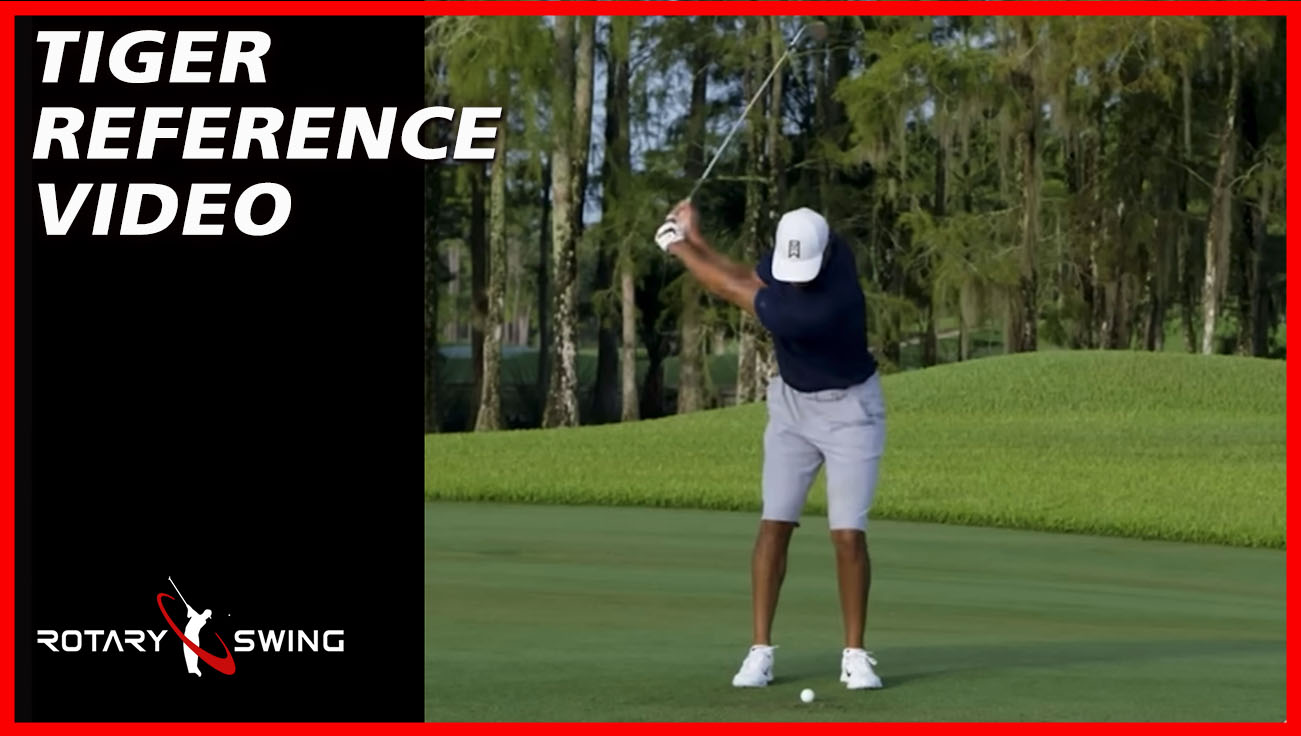
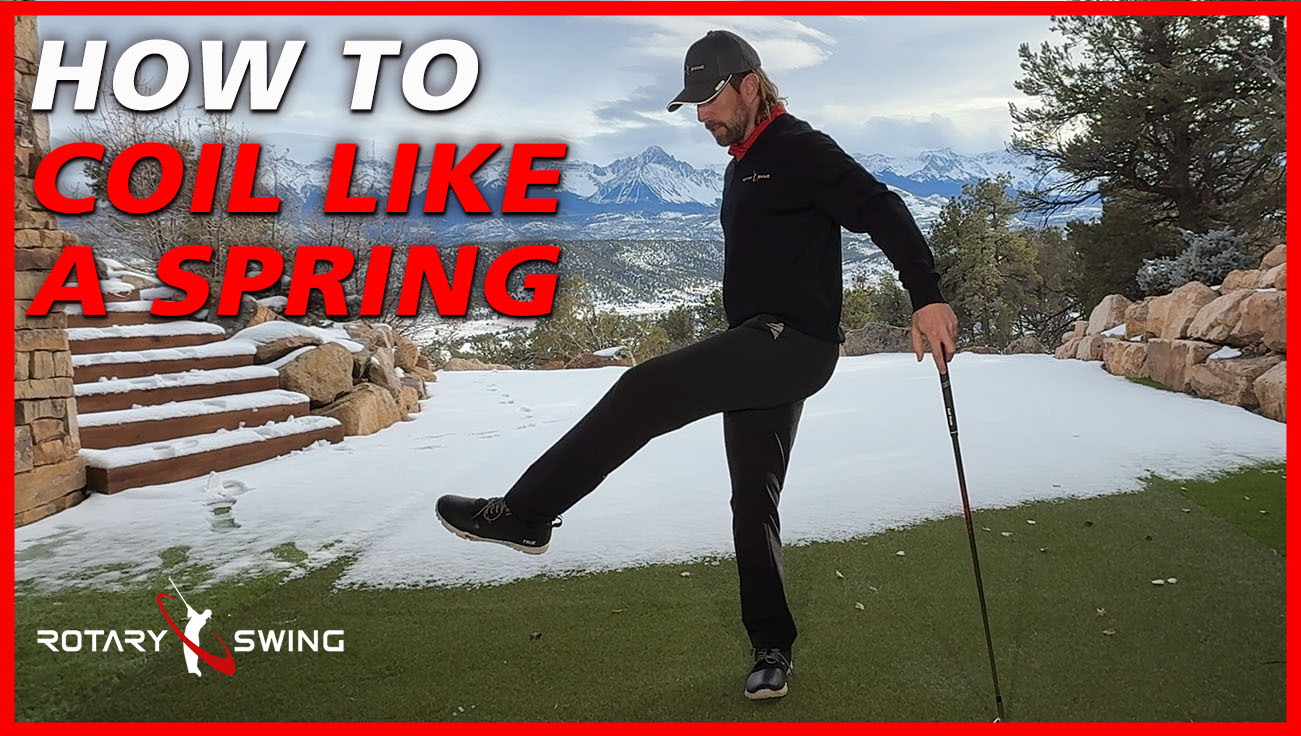
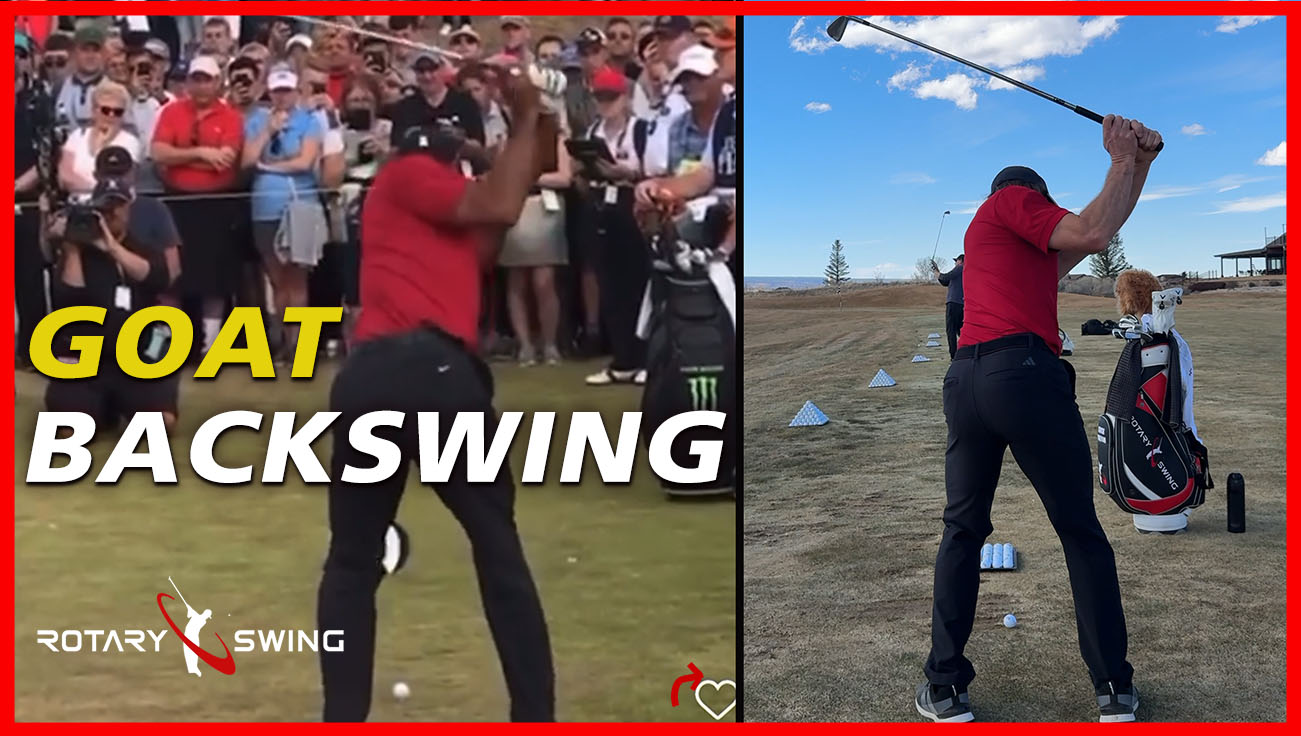
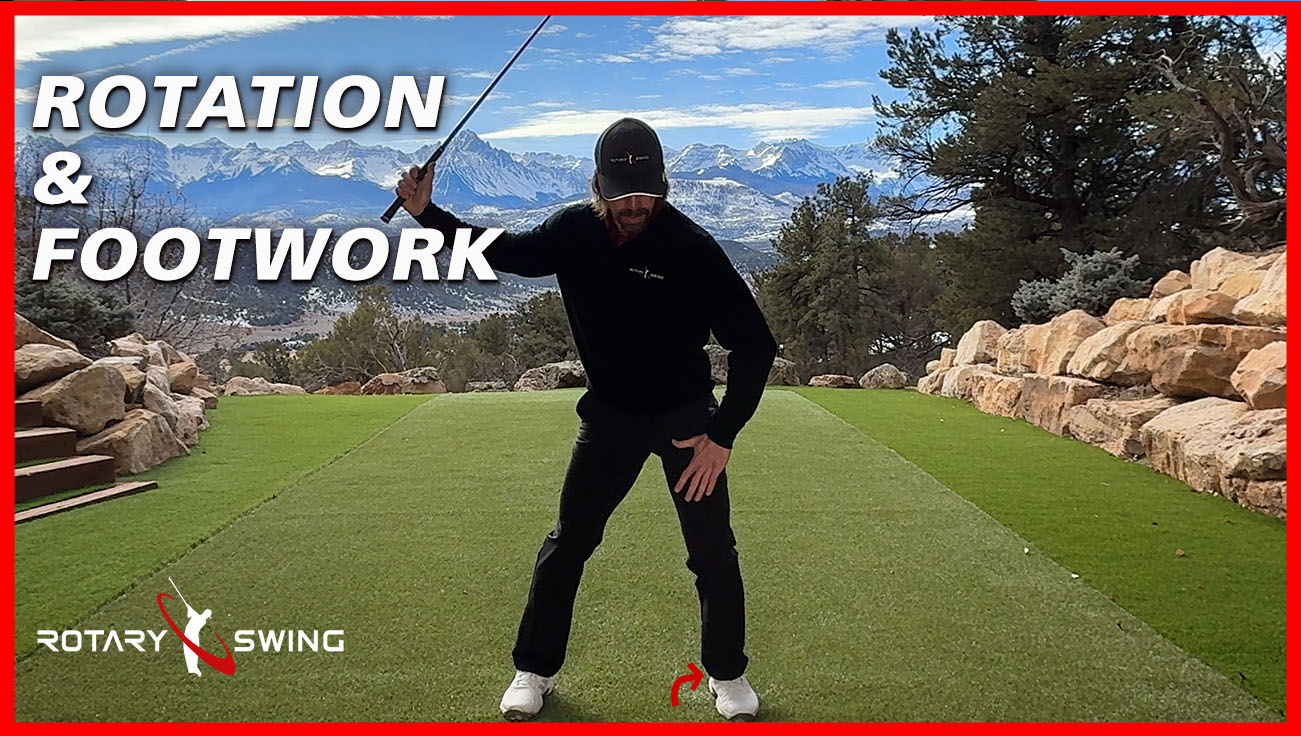
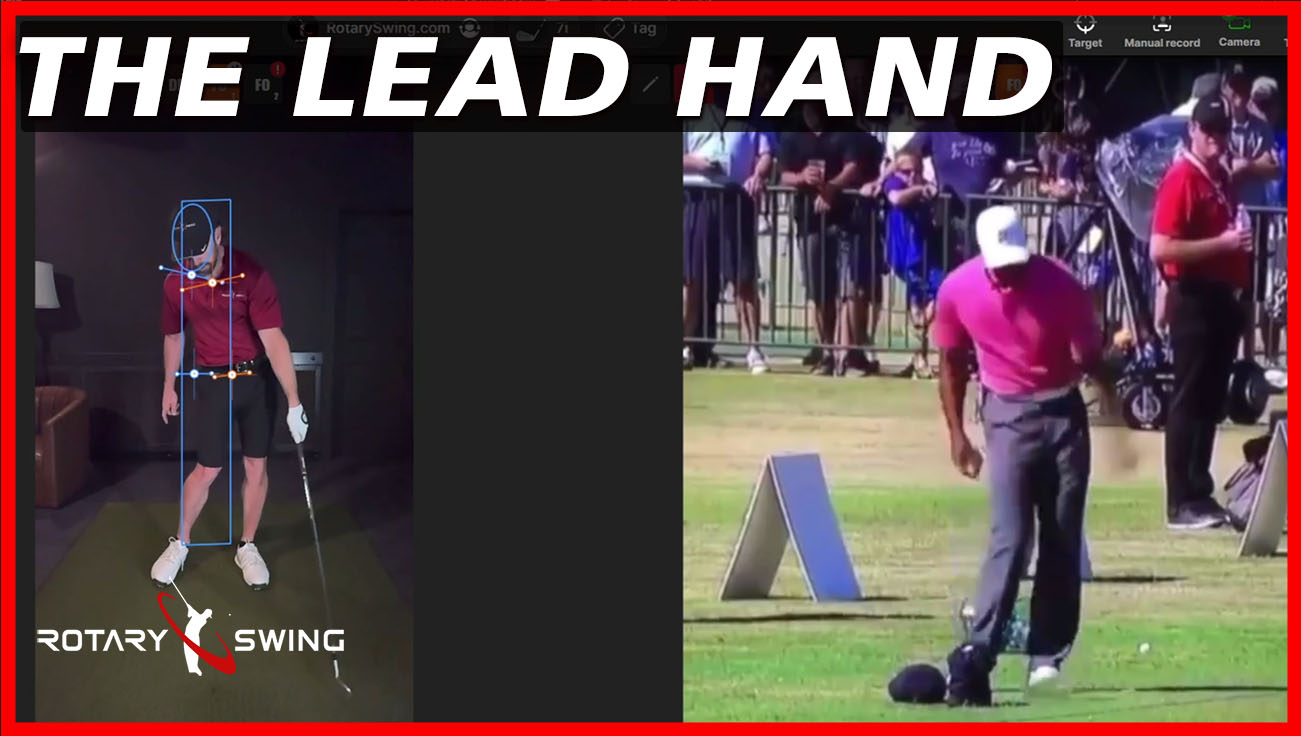
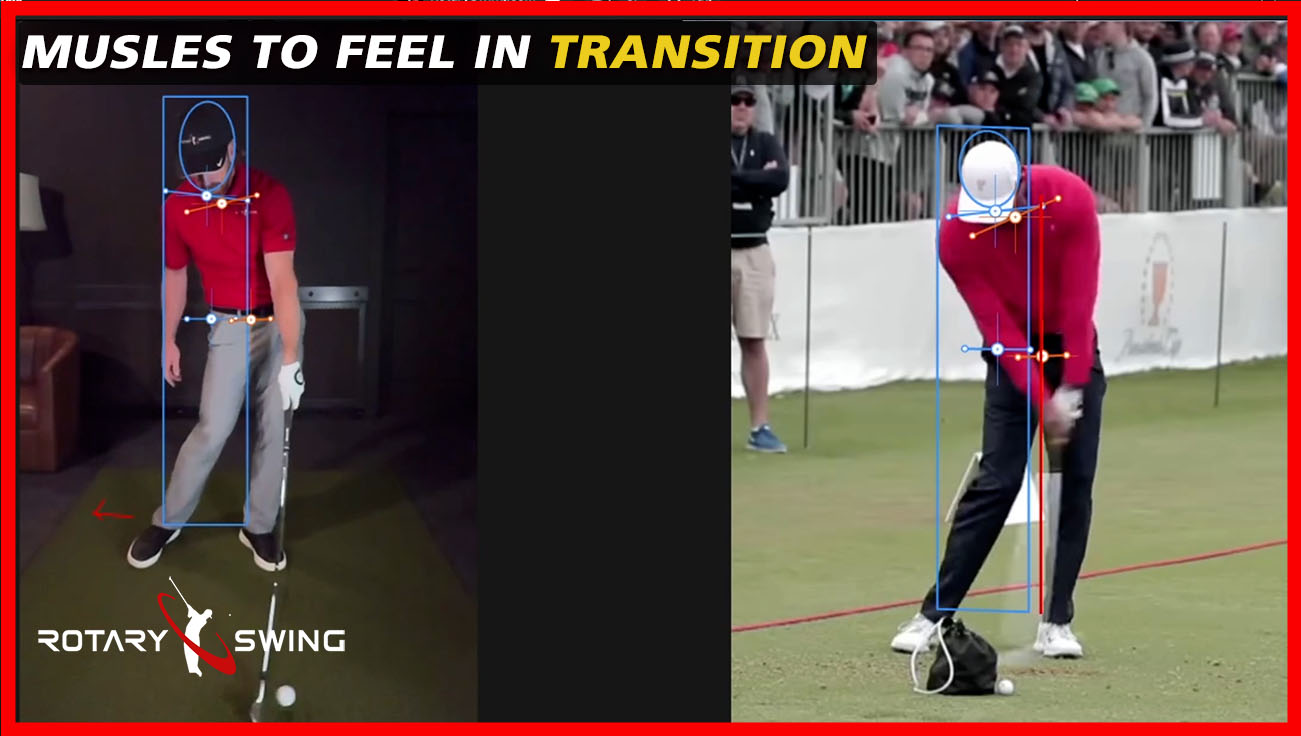
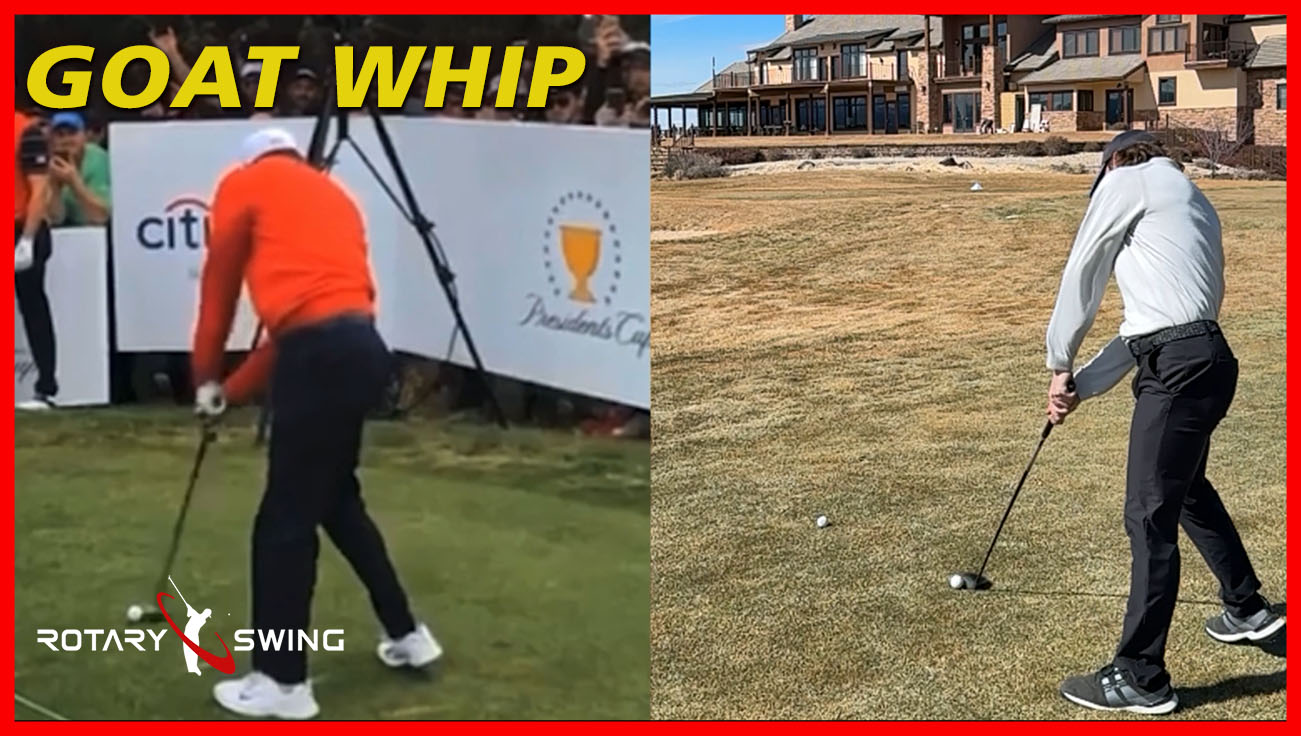
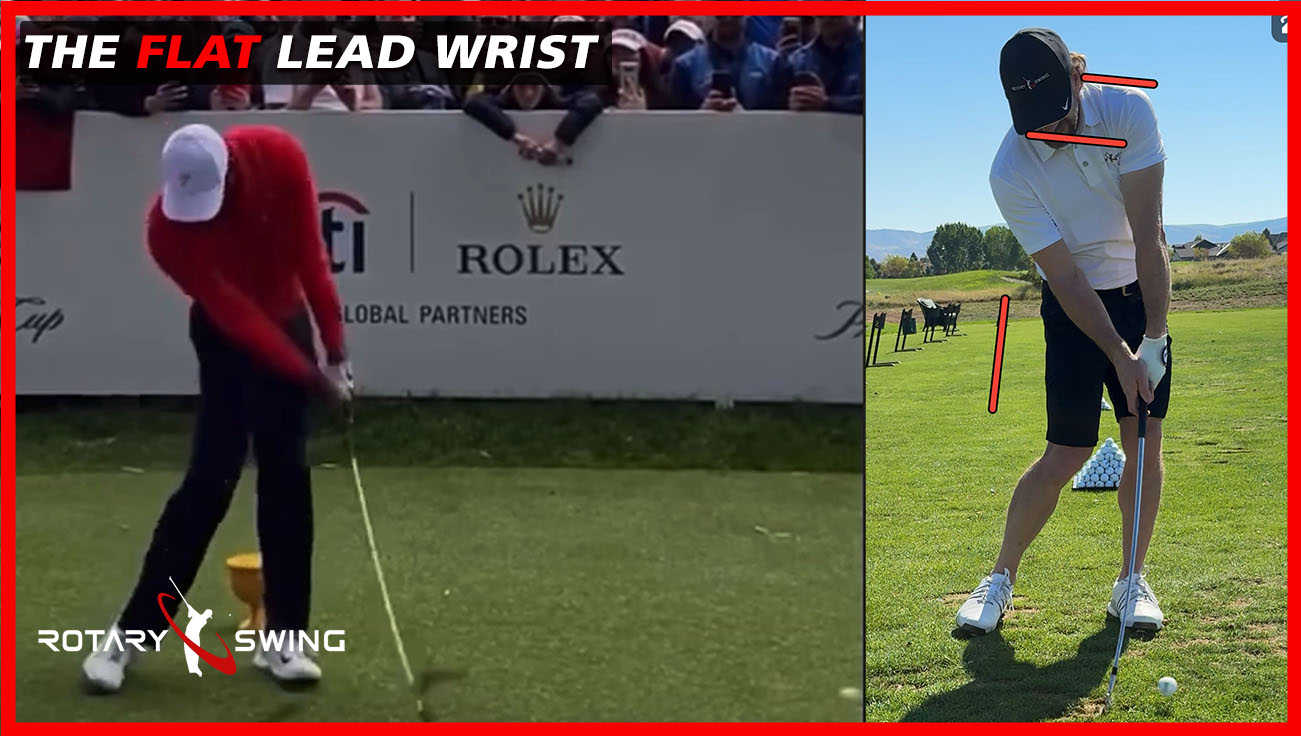

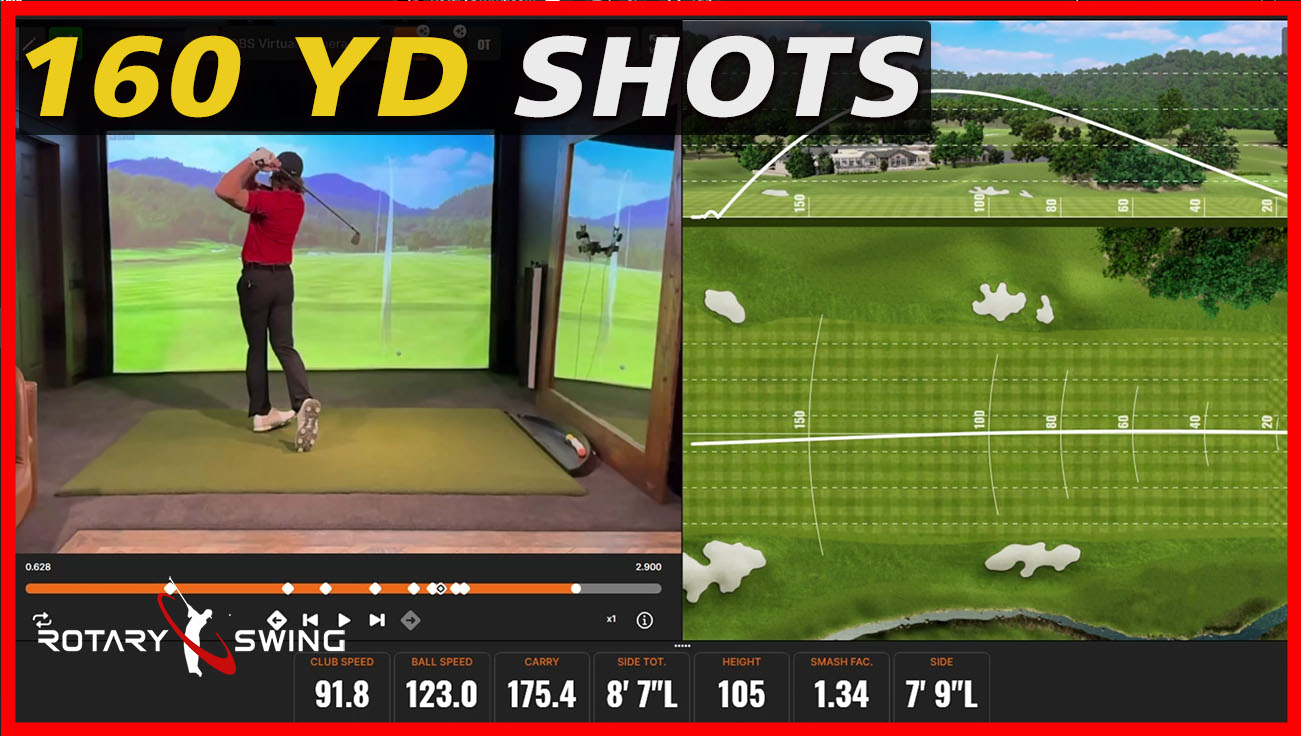
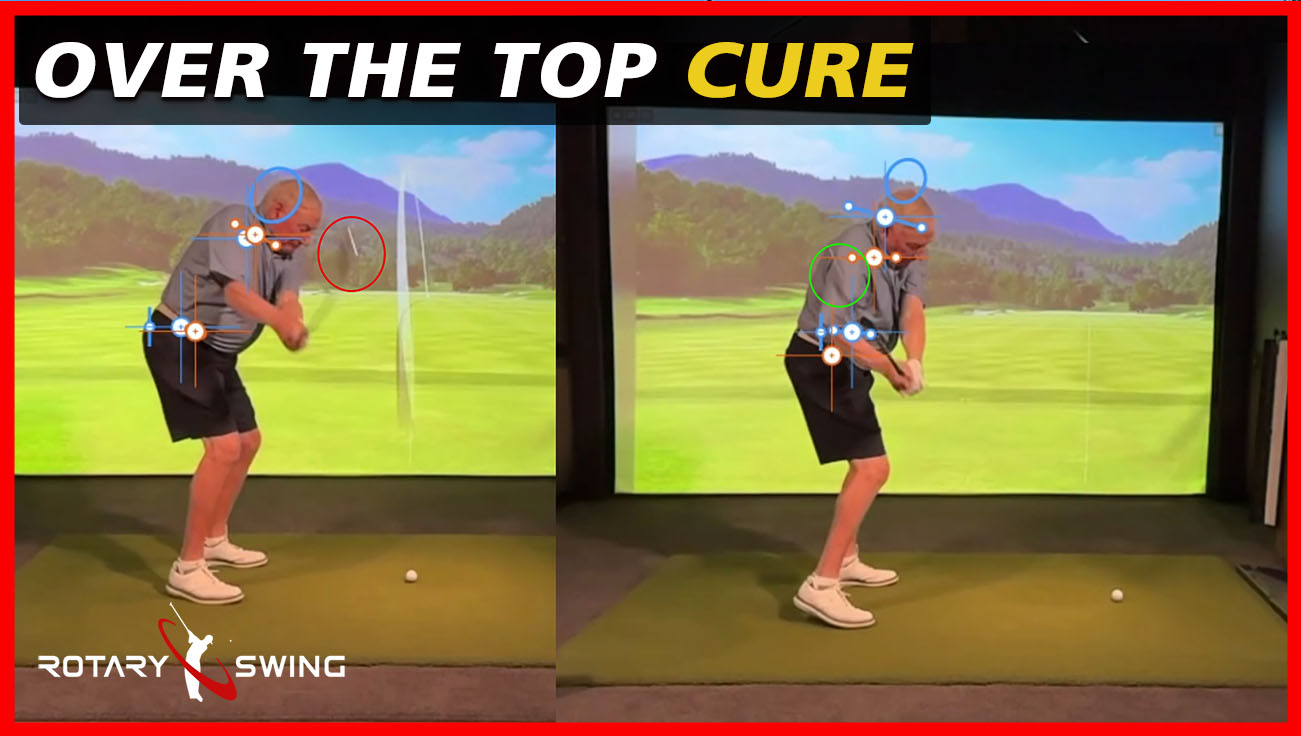

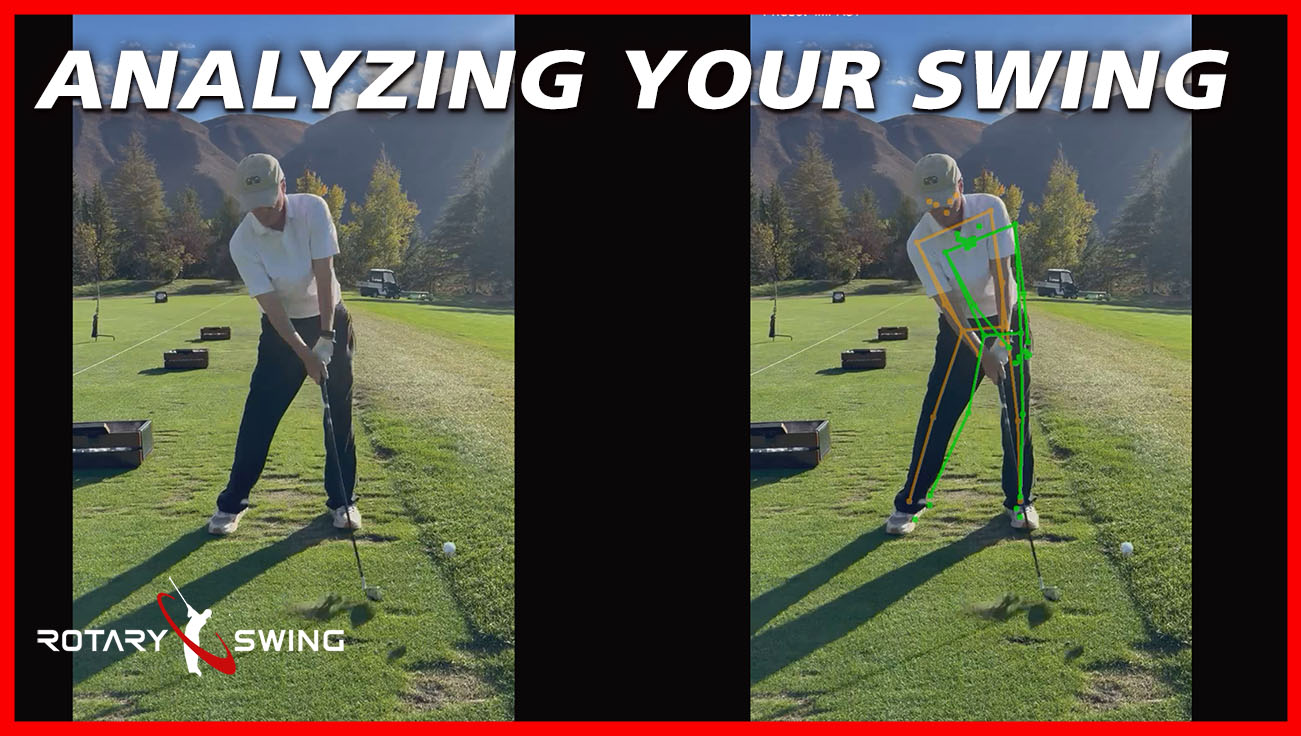
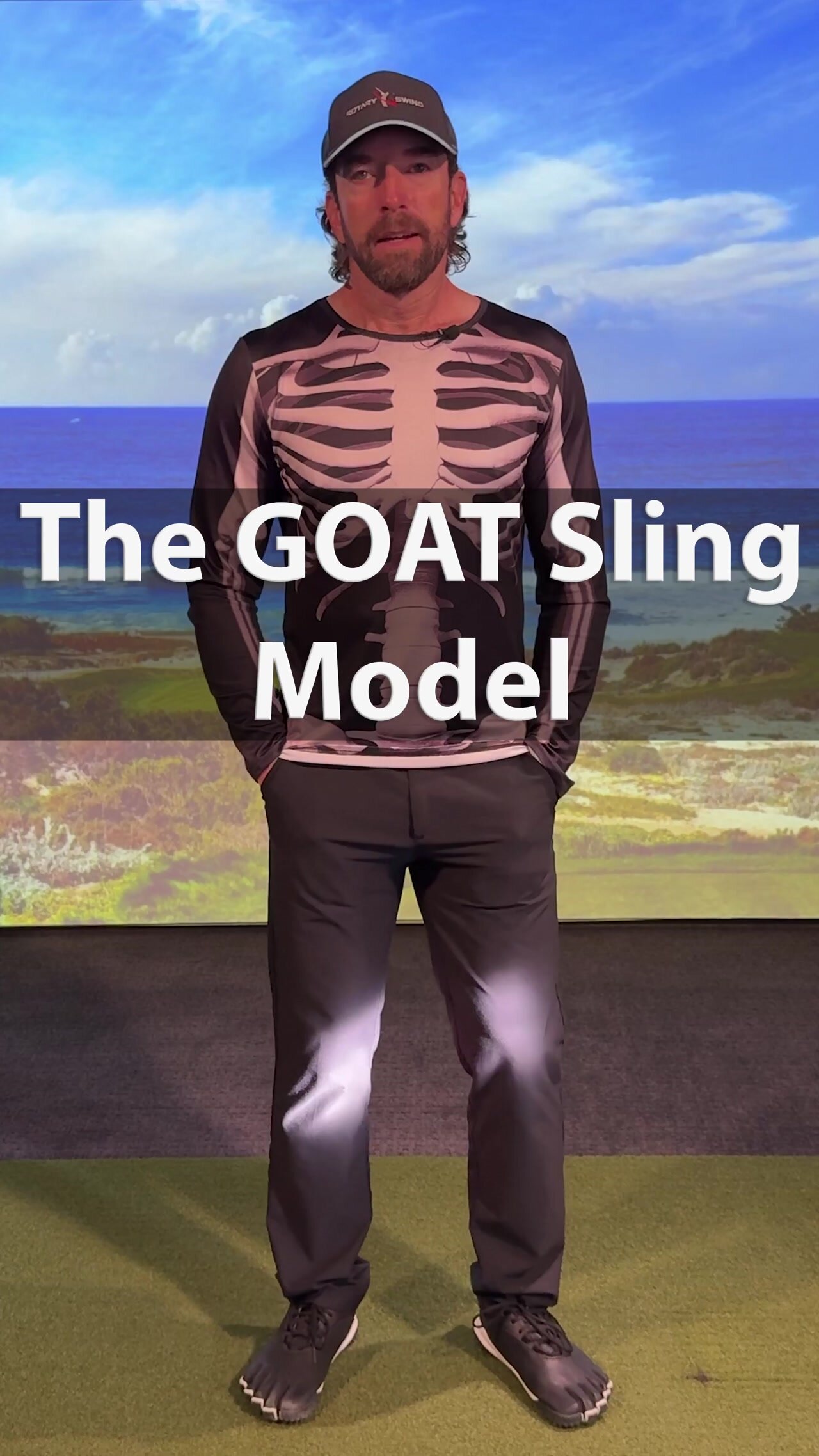
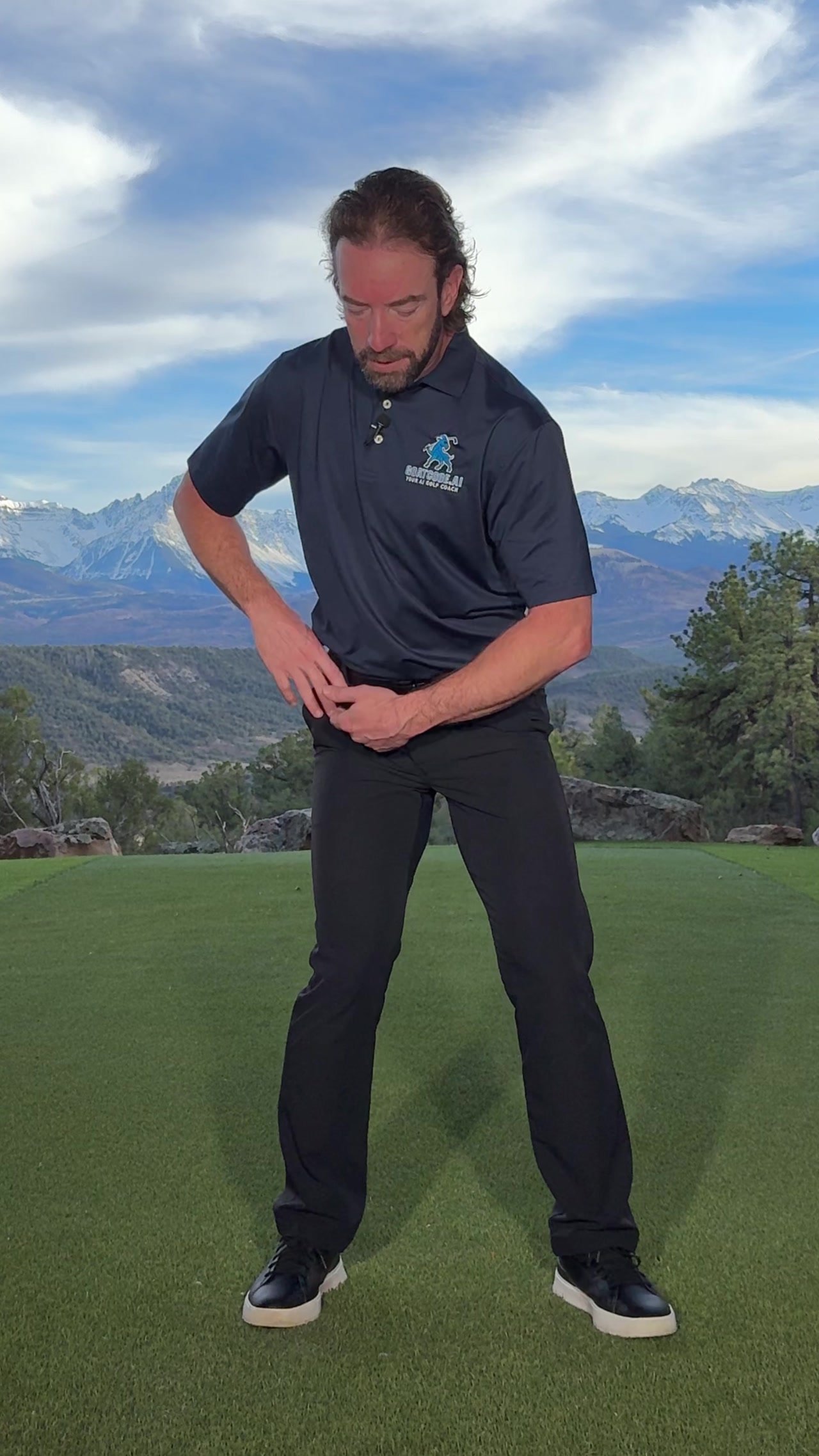
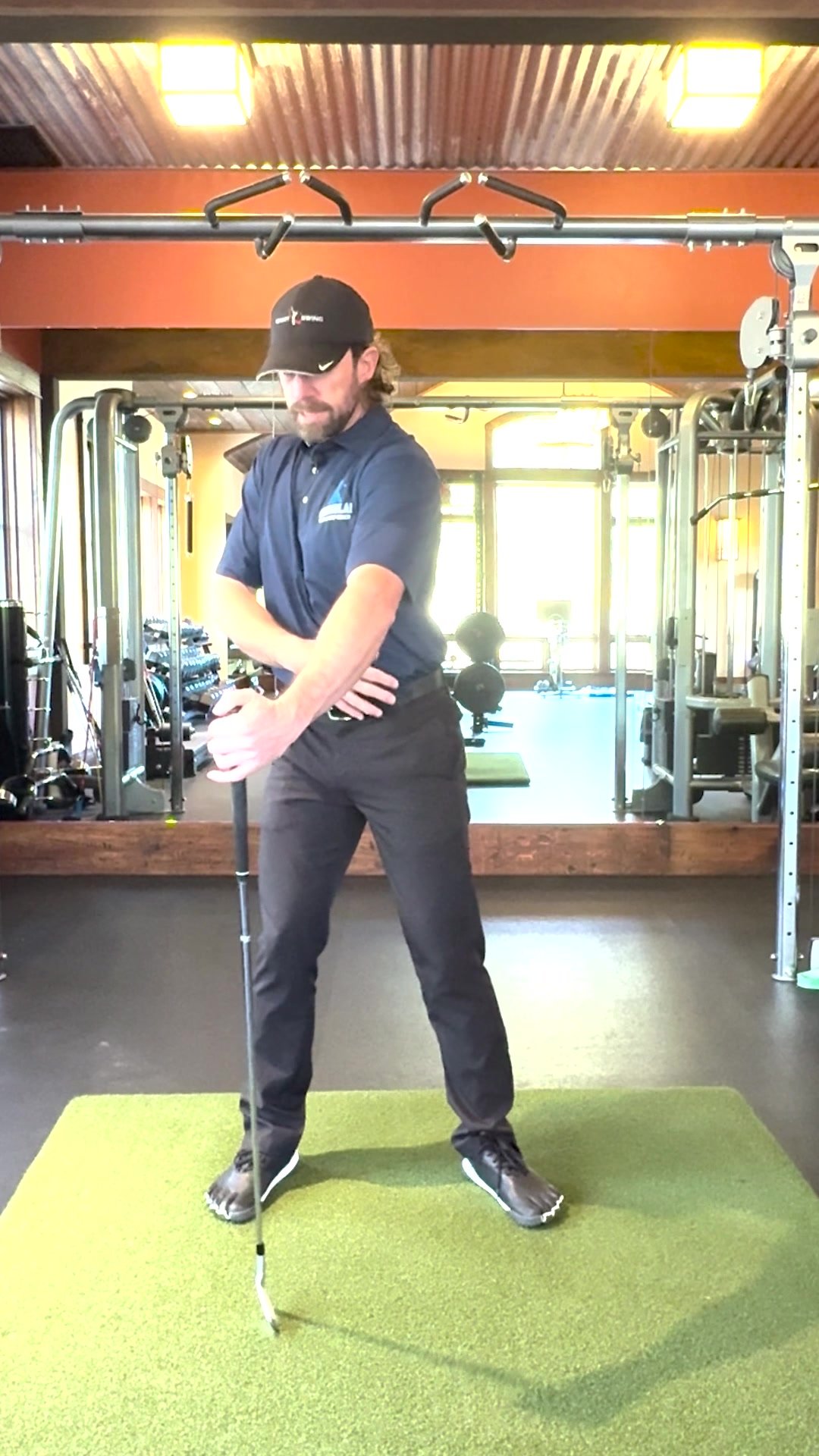
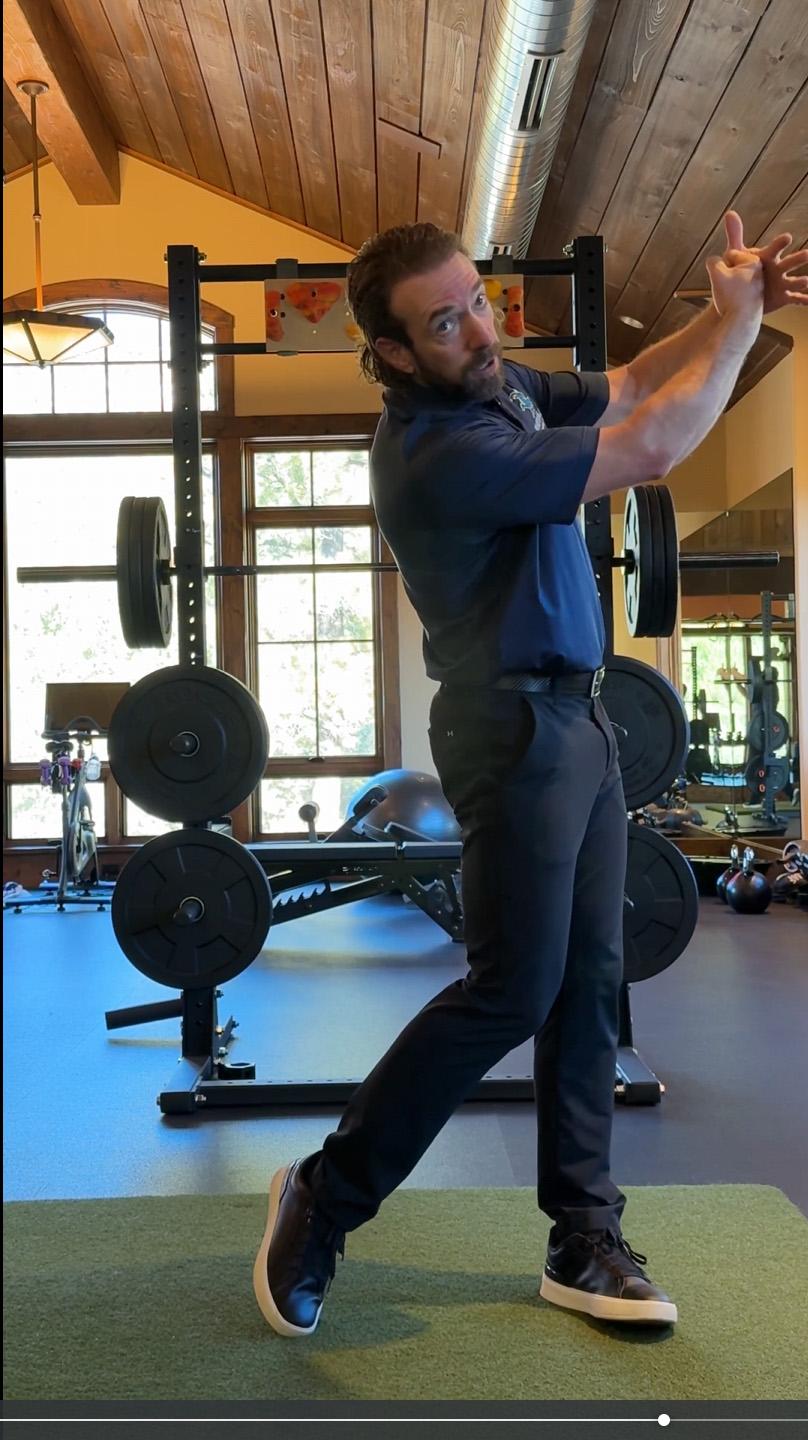
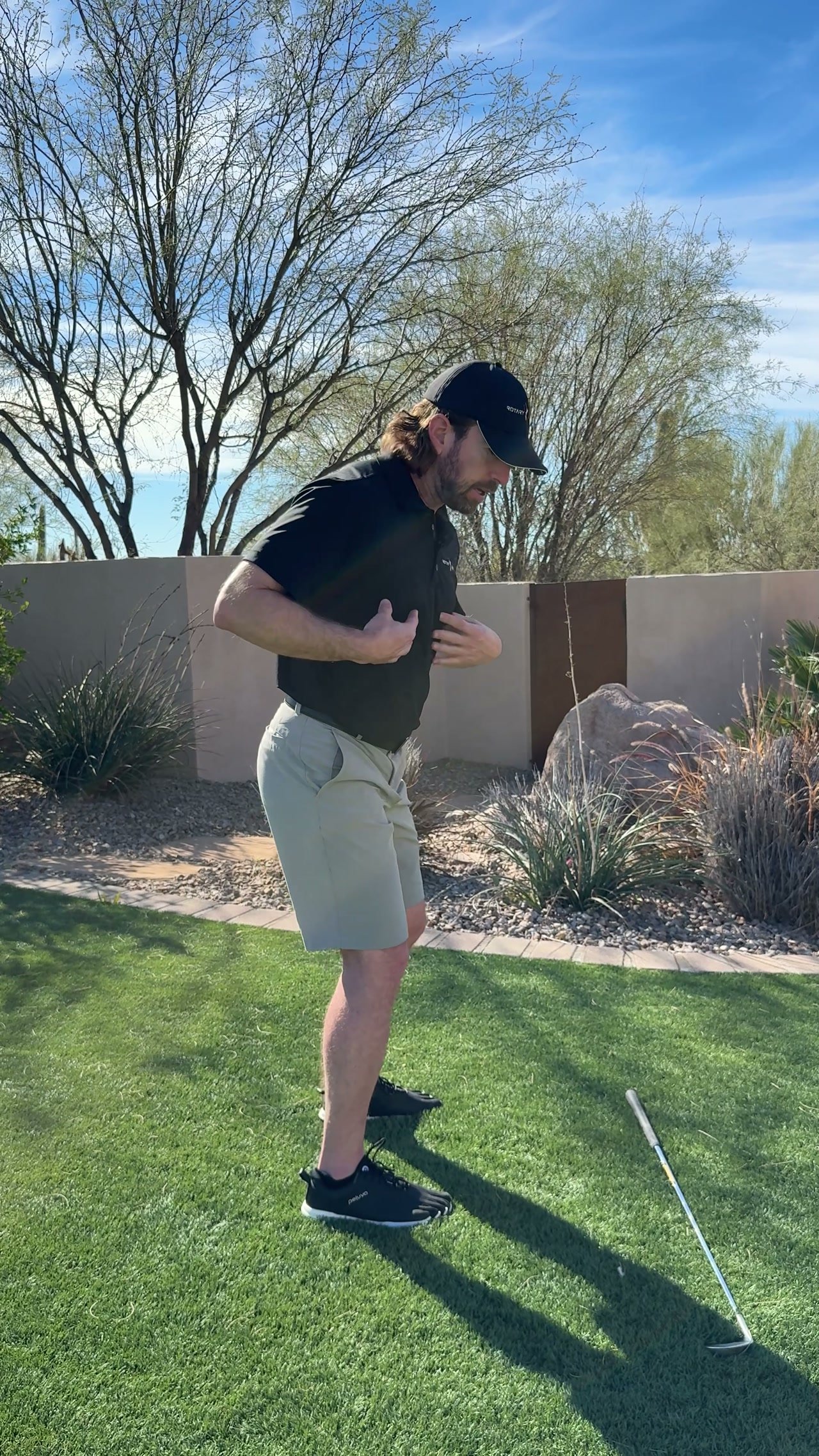
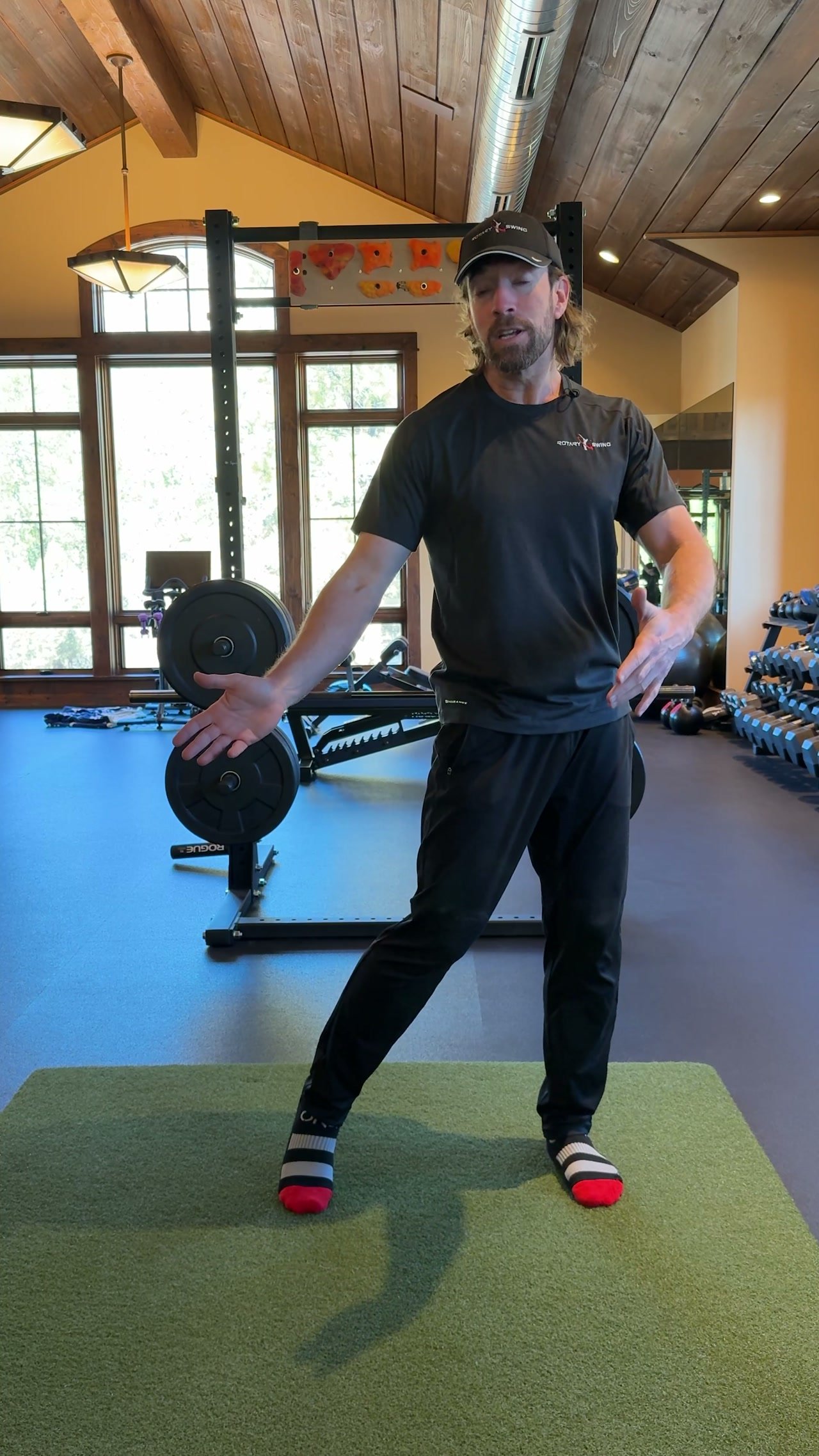



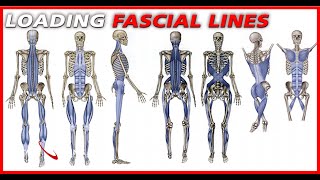




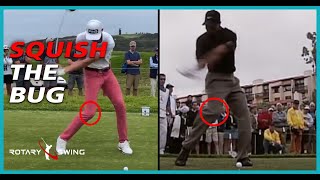

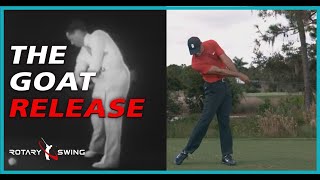
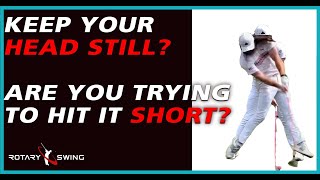






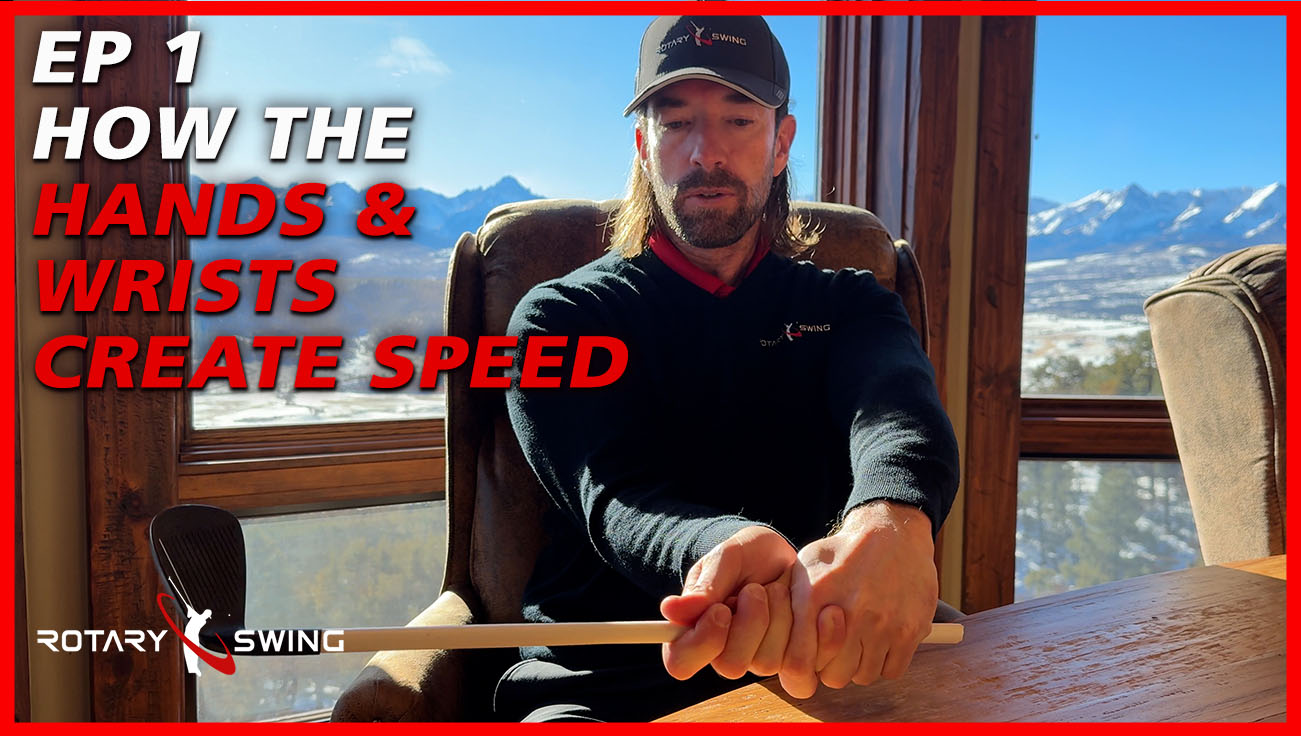

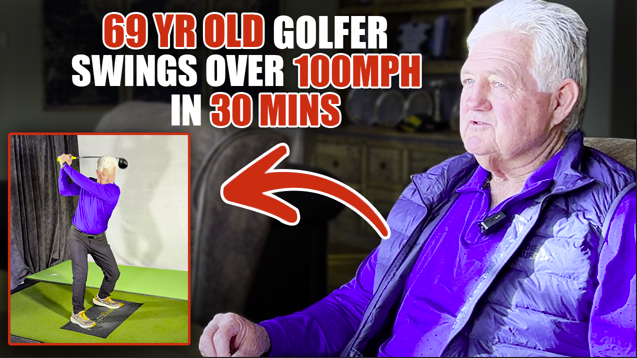




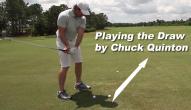







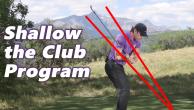
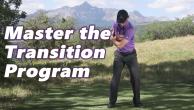

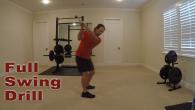


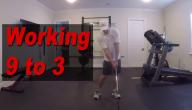

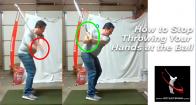
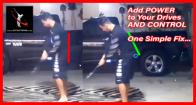

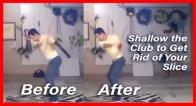




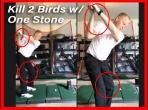
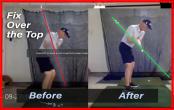
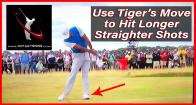

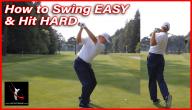
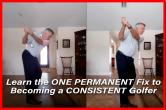

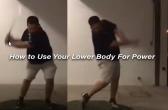
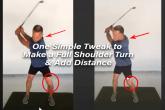
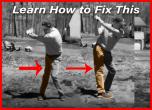
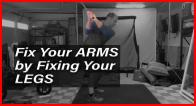
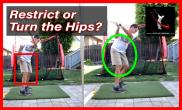
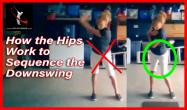



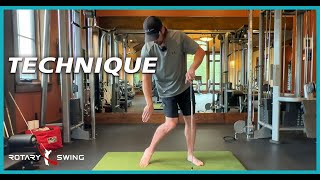

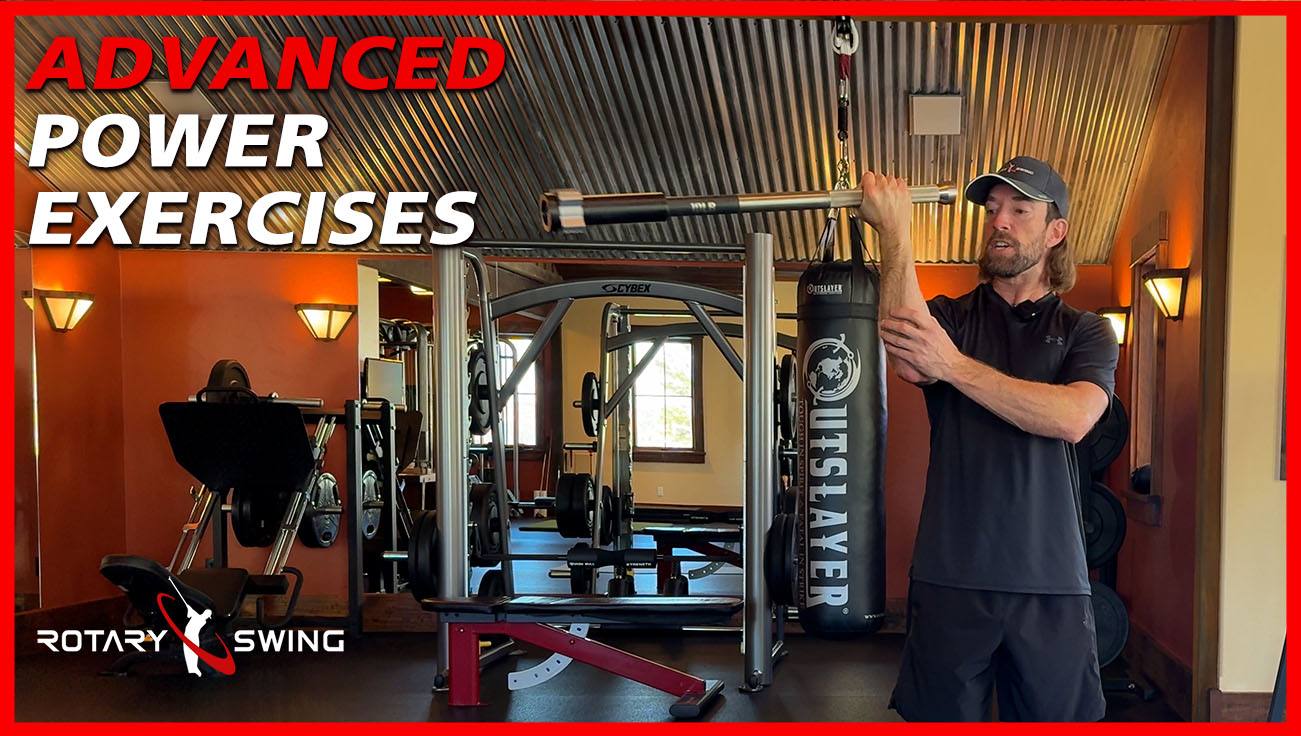
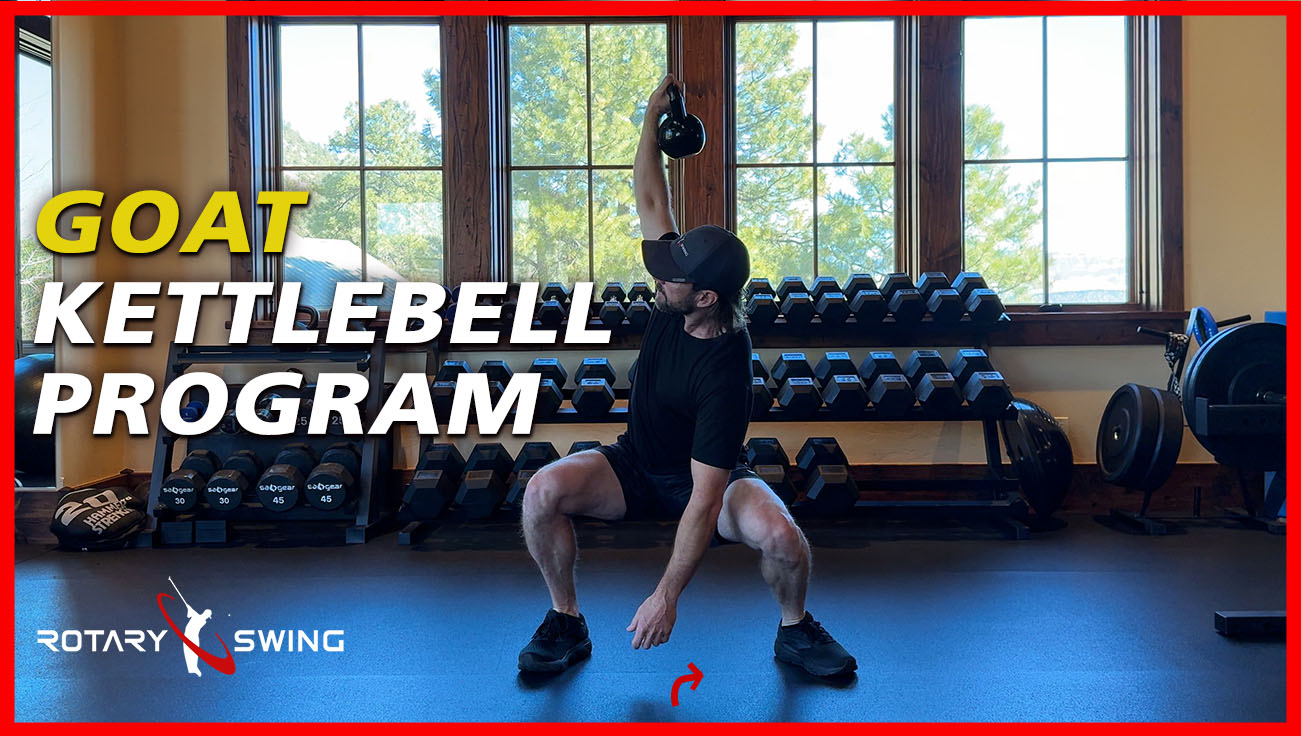




















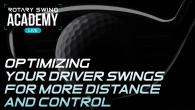
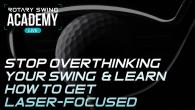




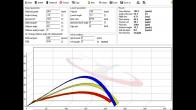
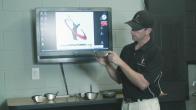




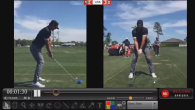
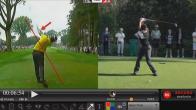

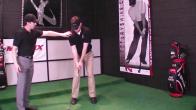


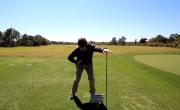
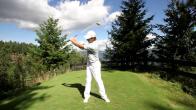






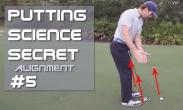






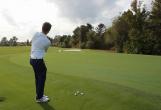



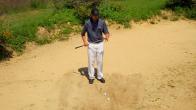

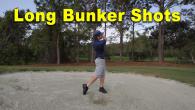

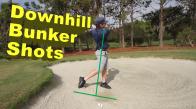



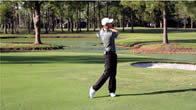

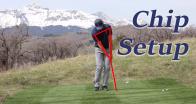

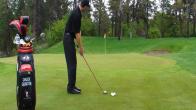

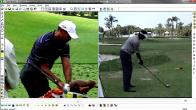



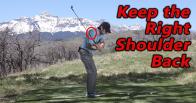


 Tiger Woods sets up for a chip shot
Tiger Woods sets up for a chip shot Many golfers place the ball much farther back
Many golfers place the ball much farther back Wrist hinge
Wrist hinge The Triangle: Tiger gets some wrist hinge, but not as much as he would for a pitch shot
The Triangle: Tiger gets some wrist hinge, but not as much as he would for a pitch shot His hands lead the way
His hands lead the way Left wrist flat
Left wrist flat Some knee action
Some knee action
